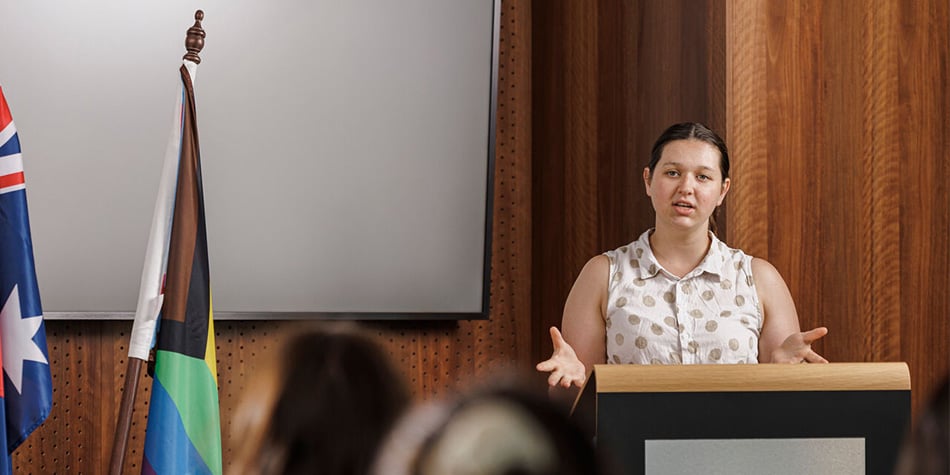Discover our research strengths and find a supervisor
At the School of Health and Social Development we're committed to research that results in real, tangible outcomes for improving health. We address the complex connections between broad determinants of health with social development in a variety of settings and at a range of intervention levels.
When you study a PhD or postdoctoral research at the School of Health and Social Development you'll be supported by world-renowned researchers. We have research degree supervisors available in the disciplines of:
- public health and health promotion
- occupational therapy
- play therapy
- disability and inclusion
- social work.
Doctor of Philosophy
Delve into researching various theories surrounding health promotion and public health and make a significant contribution in your chosen field.
Research well above world standard
Use research to make a difference to health and wellbeing with Deakin. Our public health and health services research is rated ‘well above world standard’ – the highest rating achievable – by Excellence in Research Australia.*
Meet some of our expert research supervisors
Dr Joanne Watson
Dr Joanne Watson is a senior lecturer in disability and inclusion in the School of Health and Social Development. Here she discusses her research on human rights, the wonderfully diverse team she works with and her experience supervising honours students at Deakin.
Dr Elyse Warner and Dr Hayley McKenzie
Dr Elyse Warner and Dr Hayley McKenzie talk about their experience supervising honours students, and their research interests covering the importance of housing in health and wellbeing, and low-income single parents and their experience with the welfare and child support system.
Dr Matthew Dunn
Dr Dunn is a senior lecturer in the School of Health and Social Development. He specialises in researching substance use and harm, in particular the use and harms associated with performance and image-enhancing drugs, emerging psychoactive drugs, as well as ecstasy and related drugs.
Dr Kate Anderson
Dr Kate Anderson, a researcher in the disability and inclusion team in the School of Health and Social Development, talks about her expertise in speech pathology and her experience supervising honours students at Deakin.
What are we researching?
We achieve our research objectives with strong support from our partnership network. Our research themes include:
- social diversity and the health of marginalised or excluded groups
- gender, family, reproductive and sexual health
- sustainability, environments, communities, nature and health
- violence and abuse: prevention and intervention
- child, adolescent and family therapeutic play assessments and interventions
- professional practice and higher education in public health, health promotion, social work, occupational science and therapy and child play therapy.
Our research groups
Our research groups focus on key challenges, bringing together experts from multiple disciplines to maximise our impact.
Health, Nature and Sustainability Research Group
Part of Deakin’s Institute for Health Transformation (IHT), HNS works closely with local and international partners to turn research into practical outcomes. The group leads research and teaching on the health implications of the links between humans and the natural environment.
IHT and the school collaborate across four research domains:
- Global Centre for Preventive Health and Nutrition Our innovative research empowers people and enables healthier environments with the goal of preventing obesity and improving health in society.
- Centre for Quality and Patient Safety Research Improve the quality and safety of patient care through applied health services research.
- Health Economics Prevention and treatment across the community and health sectors to ensure efficient allocation of health resources.
- Determinants of Health Addresses the social, environmental, commercial and political determinants of health.
Be part of research that’s above world standard
Our researchers, working in collaboration with partner organisations, conduct research projects that focus on the importance of positive health and wellbeing outcomes to advance the equality of individuals and communities.
We have joint research appointments with Western Health and KidsPlus. Our staff and HDR students are active members of the Institute for Health Transformation, which provides an intensive research environment across determinants of health, health economics and obesity prevention.
Find a scholarship
Reach your full potential and achieve your career goals with the support of a research degree or PhD scholarship. Our top scholarships recognise and reward students from a range of backgrounds and interest areas.
Footnotes
*Excellence in Research Australia 2018
Contact us
Get in touch if you have any further questions regarding the School of Health and Social Development.
+61 3 9251 7777

